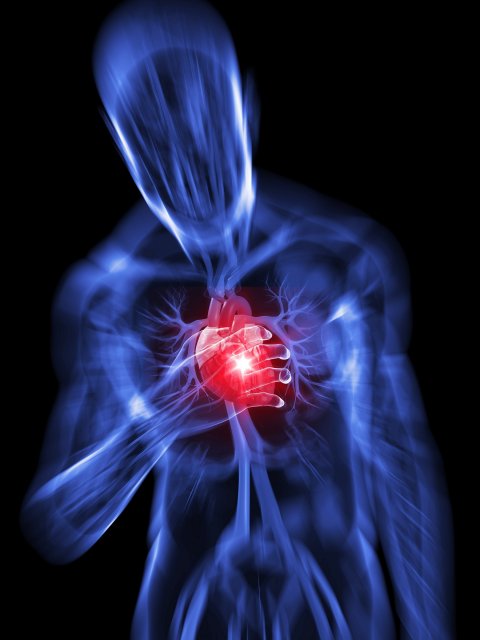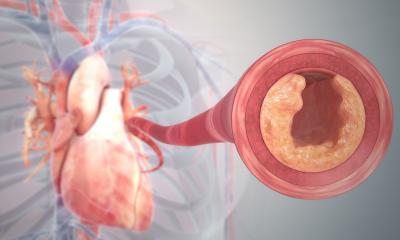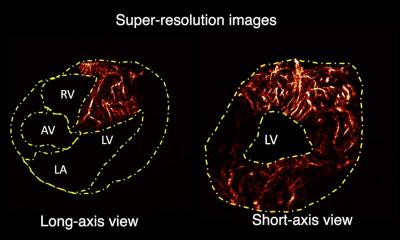News • Micro-constrictions
Reducing damage after a heart attack
Researchers in the Medical Sciences Division of Oxford University have established a key cause of micro blood vessels constricting during surgery to reopen a blocked artery, and identified a potential therapeutic target to block the mechanism behind it.

During the emergency procedure used to reopen the blocked artery causing a heart attack, smaller "micro" blood vessels can remain constricted causing significant damage. A new study led by Associate Professor Neil Herring and published in the European Heart Journal has established a key cause behind this constriction and identified a potential therapeutic target to block the mechanism behind it.
Cardiovascular disease is the main cause of death in the UK and throughout the Western World. One of the most common ways in which that manifests is through heart attacks, which occurs when one of the heart's arteries is blocked. During a heart attack part of the heart starts to die, which causes pain in the chest and can be life threatening.
Large heart attacks are treated with an emergency procedure to reopen the blocked artery using a balloon and metal tube called a stent. Whilst this procedure is often life saving, in around one third of cases smaller “micro” blood vessels beyond the stent remain constricted causing significant damage. The cause of these micro-vessels being very tightly constricted has so far been unclear.
We were able to correlate quite nicely the levels of NPY in the heart with how constricted the blood vessels were and even how much damage was done to the heart 6 months later
Neil Herring
A new study led by Professor Neil Herring has shed light on why this may happen. Innovative new research has uncovered evidence that the issue relates to the amount of stress the patient experiences during the heart attack. As part of the stress response, a neurotransmitter called Neuropeptide-Y (NPY) is released which causes micro-vessels in the heart to constrict. Furthermore, their data has demonstrated that patients with high NPY levels tend to go on to experience more heart damage.
To establish these results, the team studied patients who had experienced large heart attacks. They measured the levels of NPY both within the heart and peripheral blood. Alongside this, they took accurate and sophisticated measures of how constricted the small blood vessels were at the time. Through state of the art scans at 48 hours and 6 months after heart attack, researchers were able to see how much damage had been done to the heart. 'We were able to correlate quite nicely the levels of NPY in the heart with how constricted the blood vessels were and even how much damage was done to the heart 6 months later,' said Professor Herring.
Recommended article

Article • Cardiology & the sexes
Why heart attacks are different for women
MRI has a central role in picking up myocardial infarction with non-obstructive coronary disease, a condition that particularly affects women but is often left untreated, with potentially fatal outcome. Heart attack in women presents differently than in men and requires a different approach when it comes to detection and prevention, according to cardiologist Allison Hays.
The next step was to understand the mechanism behind how NPY causes this constriction. By studying isolated blood vessels in an animal model, researchers identified a key receptor that NPY binds to to cause the construction. They were then able to compare these results with samples of human hearts taken at the time of surgery, which clearly demonstrated that the receptor is also present in the human heart.
The crucial finding at this stage indicated that drugs that block the NPY receptor can reduce the damage of a heart attack in an experimental model. 'That gives us real impetus to say if we can come up with a drug that we can use in humans that can block that receptor, then this may be a really good new treatment that we may be able to give to heart attack patients,' said Professor Herring. Further studies are needed to establish whether NPY blocking drugs reduce the damage caused by a heart attack in patients and help improve survival.
Source: Oxford University
19.07.2019











